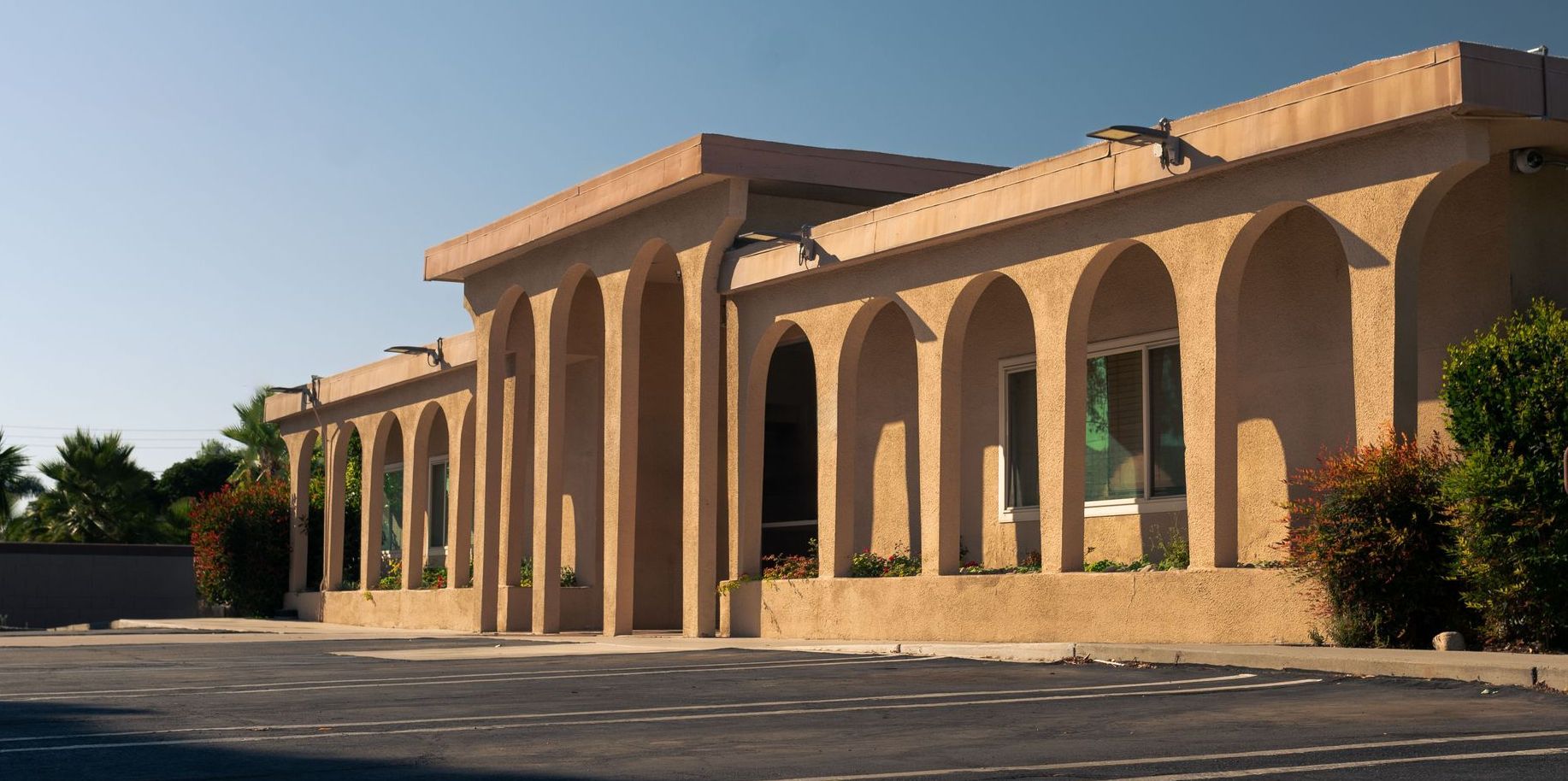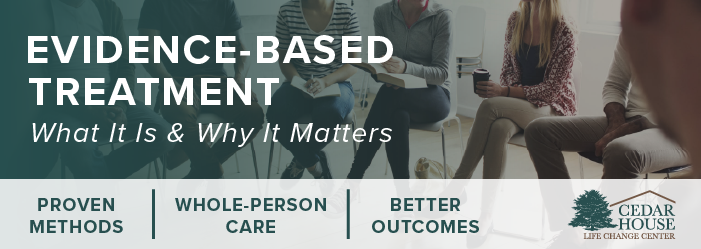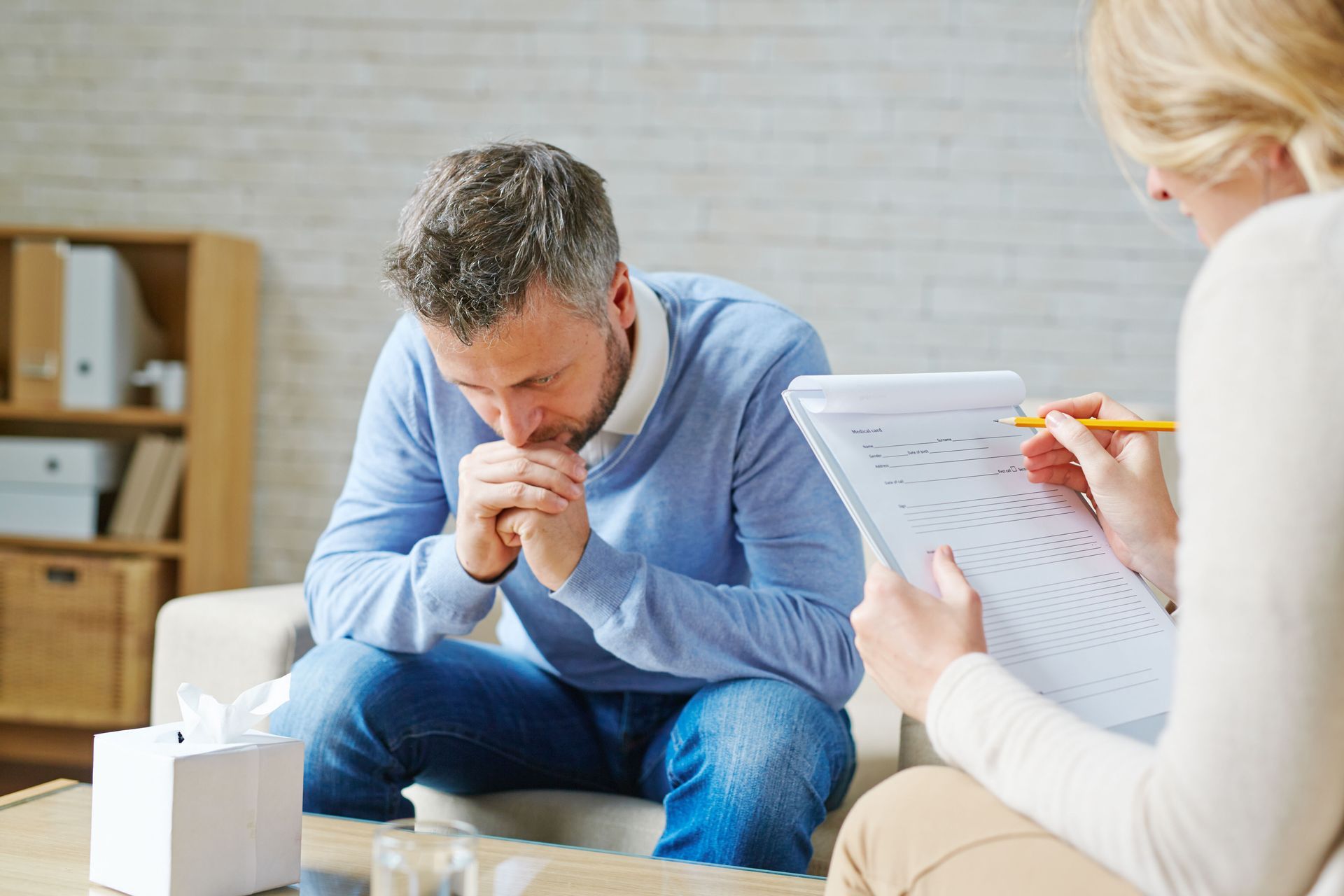Five Ways to Get Involved with Mental Health Awareness

During the month of May, join Cedar House in participating in Mental Health Awareness Month as we strive to raise awareness about mental health topics to decrease stigma and equip people with helpful, lifesaving information and resources. Here are 5 ways to get involved with Mental Health Awareness Month:
1. Educate Yourself on Mental Health Topics
Mental health refers to our emotional, psychological and social well-being. It is the way we think, feel and act. Our mental health also determines how well we are able to handle stress, relate to others, and make decisions. The goal of mental health awareness is to allow the people who are suffering to know that they are not alone and that help is nearby. To start, it can be helpful to take the time to learn about mental health topics including different conditions and their warning signs, ways you can incorporate self-care into your routine, or how to help a loved one who is experiencing a mental illness. The National Institute on Mental Health, The National Alliance on Mental Illness and the American Psychological Association are all reputable sources and great places to start.
2. Take an Online Mental Health Screening
The Mental Health America website offers free online screening questionnaires that you can take if you suspect you may be experiencing a mental health condition such as depression, substance use disorder, anxiety, post-traumatic stress disorder (PTSD), bipolar disorder, ADHD, or an eating disorder. If the results suggest you might be living with one of these conditions, we recommended that you connect with a licensed mental health professional next for evaluation and treatment. Cedar House specializes in recovery from addition and co-occurring disorders, and our admissions specialists are just a phone call away.
3. Create A Self-Care Routine
Just as habits like eating well and getting enough sleep can help us preserve our physical health, there are certain habits that can help us preserve our mental health, too. Self-care related to mental health looks different for everyone, so you may need to spend some time figuring out what works for you personally. For instance, you might find that taking regular breaks from social media helps you feel less anxious, that practicing gratitude makes you feel more optimistic, or that regularly journaling about your feelings helps you feel more balanced. Research suggests that maintaining good physical habits, such as exercising regularly, can promote mental health. In addition, meditation can help reduce stress, anxiety, and depression and may also be beneficial for those facing challenges related to addiction. Mental Health Awareness Month could be an opportunity for you to look up free videos or try an app to help you learn how to meditate to see if it offers mental health benefits for you. Once you find the activities that seem to bring you positive benefits, try to incorporate them into your regular routine.
4. Check In On Those Around You
One way to raise awareness about mental health illnesses is to talk about them openly. Share your knowledge and information with the people around you in order to keep the conversation going and create a safe space for others to talk about their struggles. People who suffer from mental health issues tend to keep these struggles to themselves. Sending a message to let your loved one know you're ready to listen can go a long way. When someone does consider in you, remember the importance of paying close attention to show respect and concern, since they've shown their trust in you. This May, commit to being more intentional about checking in on your loved ones to see how they’re doing. If they seem to be coping with some mental health challenges, you can offer support by telling your own story, offering resources, or simply providing a listening ear.
5. Support A Mental Health Organization
There are countless organizations out there that aim to support the mental health of the public in various ways. This Mental Health Awareness Month, consider getting involved with one of these in some way. Cedar House is always looking for new supporters. You can help us grow and serve more individuals in need by visiting our website to learn more and make a donation, or by simply following us on social media. Leverage your own social media to educate and raise awareness for mental health by sharing some of the information and inspiration you’ll find on our pages. You never know when your message might reach someone in their time of need.


When someone is seeking help for drug or alcohol addiction, one of the most important questions to ask is: Is this treatment evidence-based? The answer can make a meaningful difference in recovery outcomes, safety, and long-term stability. At Cedar House Life Change Center, evidence-based treatment is the foundation of everything we do. Our programs are designed using approaches that are backed by research, clinical best practices, and decades of real-world experience serving individuals and families in the Inland Empire. What Does “Evidence-Based Treatment” Mean? Evidence-based treatment refers to therapies and clinical practices that have been scientifically studied and proven effective in treating substance use disorders and co-occurring mental health conditions. These approaches are recommended by national health authorities and continuously evaluated to ensure they improve outcomes. Unlike untested or purely anecdotal methods, evidence-based care relies on: Clinical research Outcome data Professional standards of care Ongoing evaluation and improvement In addiction treatment, this matters because recovery is complex, personal, and deeply impacted by mental health, trauma, and social factors. Why Evidence-Based Treatment Matters in Recovery Addiction affects both the brain and behavior. Effective treatment must address more than substance use alone. Evidence-based treatment: Improves engagement and retention in care Reduces relapse risk Supports mental health and emotional regulation Helps individuals build practical coping skills Increases long-term recovery success For families and referral partners, evidence-based care also provides confidence that treatment decisions are grounded in proven methods—not trends or shortcuts. Evidence-Based Treatment at Cedar House Cedar House has served adults seeking recovery for decades, and our treatment model continues to evolve based on best practices and community need. Structured, Research-Supported Curricula Cedar House utilizes well-established, evidence-based curricula, including: The Matrix Model, a structured approach shown to be effective in treating substance use disorders Living in Balance, a nationally recognized curriculum that addresses substance use, mental health, relapse prevention, and life skills These frameworks provide consistency while allowing flexibility for individual needs. Integrated, Whole-Person Care Evidence-based treatment recognizes that recovery is not one-size-fits-all. At Cedar House, clients participate in therapeutic groups and services that address: Substance use patterns Co-occurring mental health conditions Trauma and stress Family relationships Emotional regulation and coping skills This integrated approach supports both short-term stabilization and long-term recovery. Medication-Assisted Treatment (MAT) When clinically appropriate, Cedar House incorporates Medication-Assisted Treatment (MAT) as part of an evidence-based recovery plan. MAT is widely recognized as an effective tool for reducing cravings, supporting stabilization, and improving treatment retention, especially when combined with counseling and behavioral therapies. Individualized Services While evidence-based models provide the framework, treatment at Cedar House is always individualized. Clinical teams work with each client to develop a plan that reflects their history, goals, strengths, and challenges. T his balance between structure and personalization is a hallmark of effective evidence-based care. Why Evidence-Based Care Matters for Families and Referral Partners Choosing a treatment program is a significant decision. Evidence-based treatment offers reassurance that: Care is aligned with clinical standards Services are ethically and professionally delivered Treatment approaches are supported by research and outcomes Recovery planning is intentional and goal-oriented For referral partners, evidence-based programs help ensure continuity of care and better outcomes for the individuals they serve. A Commitment to Quality and Accountability At Cedar House, evidence-based treatment is not a buzzword. It’s a commitment. Programs are continually reviewed, staff are trained in best practices, and services are delivered with compassion, accountability, and respect for each individual’s recovery journey. Getting Help That’s Grounded in What Works If you or a loved one is exploring treatment options, understanding whether a program uses evidence-based approaches is an important first step. At Cedar House, treatment is grounded in what works because recovery deserves care that is informed, intentional, and proven. To learn more about Cedar House programs or to access services using private health insurance, explore the website or call 909-421-7120 today.

The holiday season can be joyful but also challenging. For many people, the holidays are a time of togetherness and celebration. But for those in recovery from substance use, this season can bring a mix of emotions -- joy and gratitude, but also stress, temptation, and pressure. Family gatherings, social events, and memories of past holidays can test even the strongest commitment to sobriety. At Cedar House Life Change Center, we understand these challenges. Our mission is to help individuals and families build lasting recovery through treatment, education, and ongoing support. Here are a few practical ways to protect your sobriety and stay connected to hope this holiday season. 1. Plan Ahead for Triggers Before attending a party or event, think about what might challenge your recovery. Bring your own non-alcoholic drink, drive yourself so you can leave early if needed, and connect with your sponsor or peer network before you go. Preparation gives you confidence and control. 2. Stay Connected to Your Support System The holidays can feel isolating, especially if you’re making lifestyle changes. Reach out to supportive friends, family members, or recovery peers who understand your journey. Schedule a check-in or attend a support group before and after big events. Staying connected helps you stay grounded. 3. Prioritize Self-Care Take care of yourself, physically, emotionally, and spiritually. Maintain regular sleep, eat balanced meals, get outside, and make time for reflection or prayer. A calm and nourished mind is your strongest ally in maintaining sobriety. 4. Set Boundaries and Say “No” Without Guilt You don’t have to attend every event or explain your choices. Declining an invitation or leaving early doesn’t make you antisocial. It makes you strong. Your recovery is your priority, and real friends and loved ones will respect that. 5. Keep Recovery at the Center of the Season Stay consistent with meetings, counseling, or alumni groups. Cedar House offers aftercare support, relapse prevention programs, and peer connections that help clients stay engaged long after treatment. Recovery doesn’t stop after discharge. It’s a lifelong process of growth and renewal. You Don’t Have to Do This Alone If you or someone you love is struggling this holiday season, Cedar House Life Change Center is here to help. Our compassionate team provides evidence-based treatment, medical support, and recovery programs designed to meet each person’s unique needs. Reach out today to learn how we can help you or your loved one find peace, purpose, and sobriety this holiday season and beyond.


Share On: